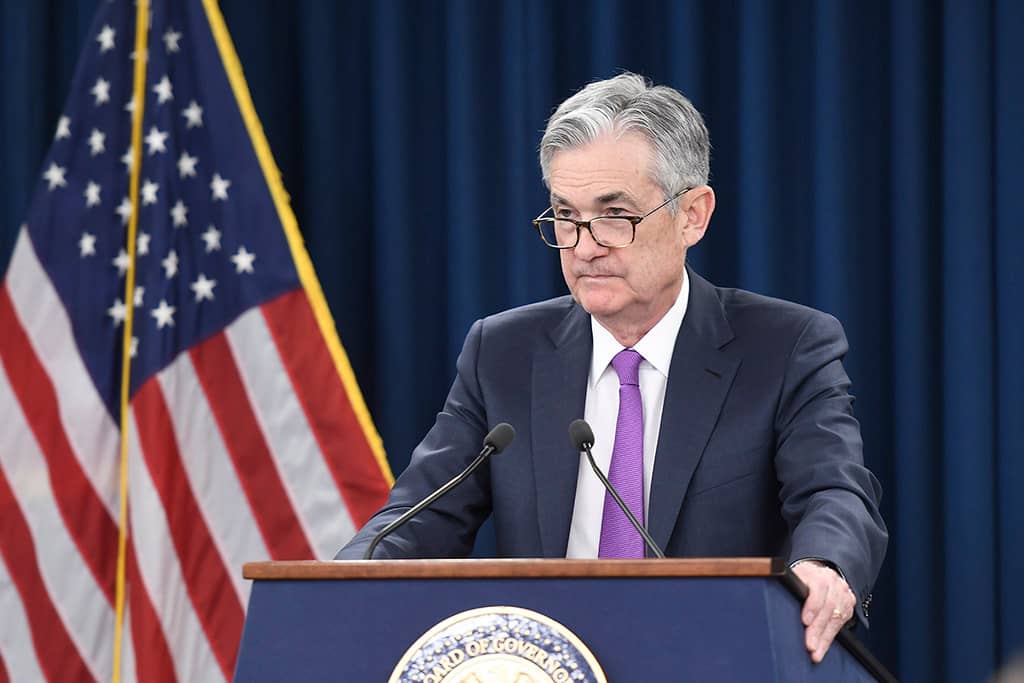Interest Rates & The Real Estate Market
Where do we think the Real Estate market is headed? Well, that’s a question that remains to be answered. There are too many variables, the most notable of which is the Federal Reserve and its attempt at a soft landing.
Inflation has been the number one economic factor affecting not only real estate but also equity and bond markets. Let’s be clear, the Federal Reserve is reactionary, in that it can’t preemptively avoid a housing market crash with the limited tools at its disposal, that’s not to say there will be a crash of any kind, but the Fed tends to take in to account lagging economic indicators like the consumer pricing index, before deciding whether or not to raise or lower interest rates.
In an article by Fortune.com titled “Fed Chair Powell: U.S. ‘housing bubble’ formed during the pandemic and now ‘the housing market will go through the other side of that’” (read the full article here) journalists quoted Fed Chair Jerome Powell in describing the run-up in home prices during the pandemic housing boom as a “housing bubble,” saying in June spiked mortgage rates would help to “reset” the U.S. housing market. Then in September, Powell told reporters that we had officially entered into a “difficult [housing] correction” that would restore “balance” to the market.
Know Your Market
In recent weeks we have seen data that suggests inflation is slowing, the Fed’s inflationary measures may be working, but further rate hikes are likely and may send the market into a downward spiral, and the Fed knows this, so I am of the opinion that the Feds best course of action should be a ‘wait and see approach’ where they simply do nothing and continue to monitor the health of the economy and the housing market and refrain from further rate hikes unless inflation continues to rear its ugly head, in which case we should expect further interest rate hikes.
On Wednesday, December 14th, the Federal Reserve once again decided to raise interest rates by 50 basis points or 0.50% in a continuing battle of the Fed vs inflation that could slow the economy and raise unemployment. The rate increase brings the Federal Funds rate to a range of 4.25%-4.5%, with Fed officials projecting a top range of 5.25% for its benchmark rate. It’s important to note that the Federal fund’s target inflation rate is 2.0%, which means we’re a long way off from achieving the so-called balance the market seeks. The latest consumer price index change over 12 months is at 7.1% from a peak of 9.1% in June of 2022, and the last time we saw inflation near the 2% range was February 2021 at 1.7% before it started to spike out of control.
“Fed officials project steady declines in inflation, starting with a drop to 3.1% in 2023 and then moving to 2.1% by 2025. They see cuts totaling 100 basis points in 2024 and another 100 in 2025. Financial markets had been expecting a rate cut next September.” According to an article published by MarketWatch.com (read the full article here).
Let’s not forget we still have a housing shortage, with more buyers than homes available for sale, and homebuilders with an abundance of new housing starts looking to offload those properties, creating further downward pressure on home prices. Ultimately the law of supply and demand will sort out this Real Estate market without any further need from the Federal Reserve to continue to spike interest rates to thwart inflation in the housing market, or at least that is my opinion on the matter. However, Fed officials suggest that higher unemployment rates are necessary to tamp down the high inflation rate, thus allowing the Federal Reserve to begin cutting rates rather than raising them. “Officials project the unemployment rate will rise to 4.6% in 2023 from 3.7% in November. That is not as high as the rate that many economists expect will be needed to bring inflation down.” So basically Fed officials would like to induce a recession in order to fight inflationary pressures and bring consumer spending back down to manageable levels.
Stay informed on local market conditions, and ask your professional Realtor for a market report that may provide insight into what’s happening in your neighborhood or localized Real Estate housing market.
Make sure to follow us on Instagram and Facebook for Real Estate Tips, market news, price trends, and more. Also be on the lookout for the launch of our new youtube channel where we will give you a weekly rundown on all the most important information regarding Real Estate and economics.

